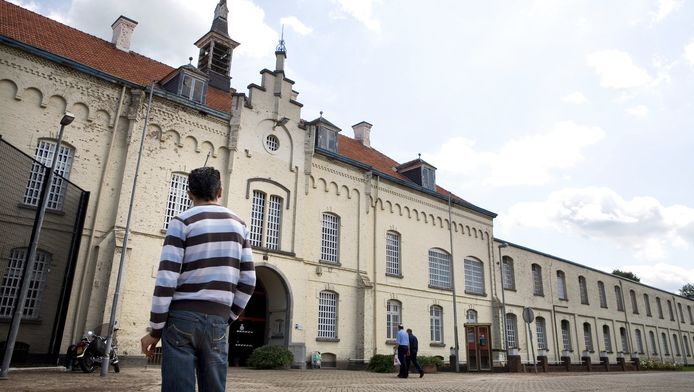The Federal Government approved the creation of four centres for the forced return of migrants, which is the so-called "missing link" to improve the return of people staying in Belgium illegally.
There are currently six detention centres with a maximum capacity of 751 places where people are held pending forced deportation to their country or region of origin. With the construction of the four new centres, the capacity will increase to 1,145 places, State Secretary for Asylum and Migration Sammy Mahdi announced.
"This decision is a real milestone. This is a historic expansion. We are doubling the return capacity and finally taking a giant leap forward in our country's return policy," Mahdi said.
Three new return centres will be built in Zandvliet, Jumet and Jabbeke by 2029. One departure centre for short stays will be built, with construction starting in 2024, in Steenokkerzeel near Zaventem airport, where people who have to return are briefly detained in order to make a quick return to the country of origin.
Under the previous Federal Government, families with young children were locked up in closed centres for a while, but following mass criticism, alternative return centres were created. Another 26 such centres will be set up, resulting in a total of 54 such housing units. In return homes, fewer freedom restricting measures apply, and children can continue to go to school.
Mahdi said that this signifies a turnaround in the country's return policy. "Our return policy will be different and better. More resolute, but also more humane."
No longer left to own devices
Some 24,000 people receive an order to leave Belgian territory every year, while during the past five years, an average of more than 30,000 interceptions of undocumented foreigners have been carried out annually by police.
Those remaining in the country illegally receive a document stating that, as a rule, they have 30 days to leave Belgium. Previously, there was little follow-up beyond the letter. "This is changing with our accosting return policy," Mahdi stated.
"Illegal residence is never a good option. Not for the foreign national in question, not for our society. With our accosting return policy, we work on assistance from day one. All those who are told that they have to leave Belgium are followed up individually and with vigilance."
The country has started developing a network of regional offices for return counselling and return counters, where a foreign national who received a notice can be helped by return counsellors. This person will discuss all options with the person concerned, from analysing possible ways of staying in the country legally, to voluntary return and the risk of forced return.
Related News
- Unfair treatment: Different registration fees depending on commune for Ukraine refugees
- 'Only taking in Ukrainian refugees is illegal,' says Migration Minister
Those who refuse voluntary return, pose a danger to our public order, or cause nuisance are at risk of facing forced return. The Immigration Department forcibly removed almost 2,000 people last year.
"Often people with illegal residence come into contact with the police when they disturb public order or cause nuisance. This problem is particularly visible in our major cities."
Mahdi noted that for this system to function efficiently and in a "humane way", more infrastructure is needed. "We are building new closed return centres that will be used for the forced return of persons residing illegally."

